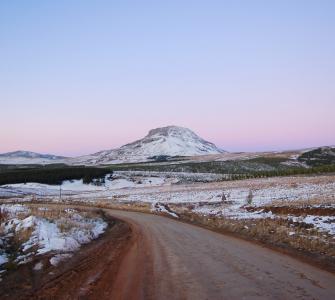Background
In South Africa, securing clean and reliable water supplies has long been a national priority. Yet many of the country’s most important water catchment areas, unlike iconic wildlife parks, have not benefited from tourism or other market-based conservation funding. Their true value lies in the essential public goods they provide to communities, industries, and ecosystems downstream. These areas, known as Strategic Water Source Areas (SWSAs), are vital for the country’s water security but have often been poorly protected and managed.
To address this, Conservation Strategy Fund (CSF) partnered with The Nature Conservancy (TNC) to measure and communicate the economic value of ecosystem services in one of South Africa’s most critical yet under-recognized catchments: the Amathole SWSA in the Eastern Cape. The project aimed to generate robust economic evidence that could influence water, biodiversity, and climate policy while building the case for greater investment in natural capital.
Delivered in two phases, the project began with a national review of existing research in 2024, followed by a detailed economic valuation of the Amathole region, identified by TNC South Africa as a priority catchment for protection. The study’s results provided a powerful tool for demonstrating how nature underpins South Africa’s economy and quality of life, while guiding the inclusion of SWSAs in the country’s Protected Area Expansion and 30x30 implementation plans. Lessons learned from Amathole also informed discussions at the SWSA 30x30 Forum, strengthening collaboration among government, NGOs, and research partners working to protect the country’s water sources.
This work advanced the global understanding of how economic valuation can support nature-based solutions in data-scarce, highly biodiverse contexts. It offered a replicable model for other nations seeking to integrate natural capital into national development and climate planning. The findings showed that protecting nature is not only an ethical or ecological choice but also a sound economic strategy.
Key Results
The Amathole Strategic Water Source Area provides over 90% of the water stored in local dams that supply the towns of East London, King William’s Town, and Bisho. Its forests, thickets, grasslands, and wetlands also store carbon, sustain agriculture, and support local communities and biodiversity.
To quantify these benefits, CSF and TNC estimated the economic value of three major ecosystem services:
- Carbon sequestration
- Amathole’s natural ecosystems captured between US $4 million and US $185 million (R 72 million–R 3.3 billion) in carbon value each year, depending on vegetation type and carbon prices.
- Most of this value came from intact forests and thickets, emphasizing their importance to South Africa’s climate targets and their potential to generate revenue through carbon markets or payment-for-ecosystem-service schemes.
- Water supply
- The region’s rivers and wetlands provided US $10 million–US $25 million (R 177 million–R 437 million) in water-provisioning benefits annually.
- However, the spread of invasive alien plants such as wattle and pine reduced water yield by about 6%, costing the local economy tens of millions of rands each year.
- These findings strengthened the economic argument for catchment restoration and invasive species control as cost-effective investments in water security.
- Food provision
- Nature’s contribution to local agriculture, measured through its support to crop productivity, was valued at around R 29 million (≈ US $1.5 million) per year for maize production alone, with total ecosystem-supported benefits ranging from R 14 million to R 198 million depending on scale and production intensity.
Together, these services are worth hundreds of millions to billions of rands every year.
Impact
The Amathole valuation provided a credible, data-driven foundation for integrating ecosystem services into South Africa’s water and land-use planning. Policymakers now have tangible economic evidence showing that:
- Healthy ecosystems are critical infrastructure, underpinning water supply, food production, and climate resilience.
- Degradation carries measurable economic costs, particularly from invasive species and unsustainable land manage
- Investing in ecological restoration, sustainable land use, and nature-based finance such as carbon credits, ecological fiscal transfers, and payments for ecosystem services offers high social and financial returns.
By placing a monetary value on nature’s benefits, this study gives decision-makers, investors, and communities clear evidence that protecting the Amathole catchments is a vital investment in South Africa’s long-term water, food, and climate security.
__
Photo: Hogsback, Amathole Mountains, Charmaine A Harvey, Shutterstock

